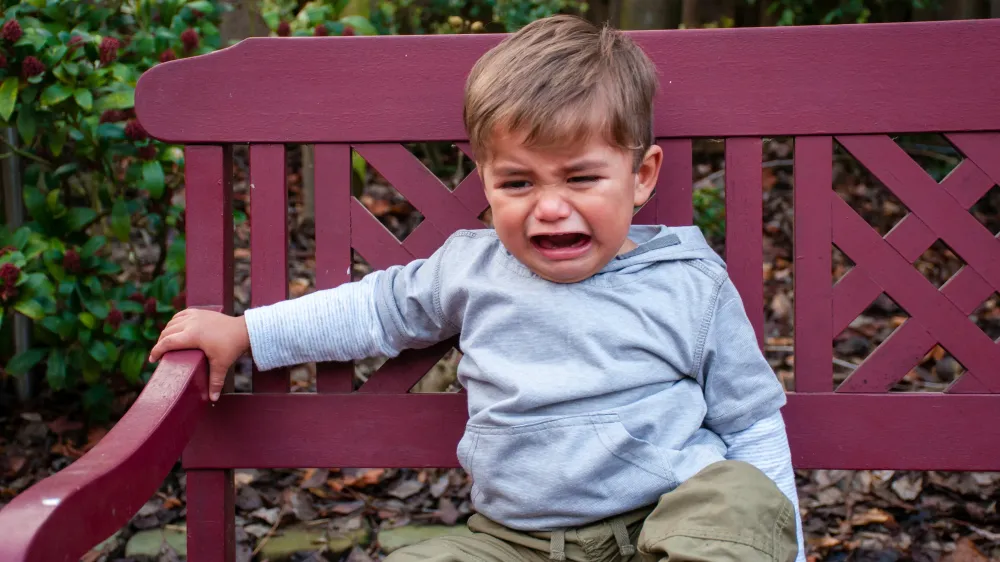Installing Responsibility in Kids

From the pulpit, a minister asks his congregation, “When does the statute of limitations on bad parenting expire?”
His answer: the eighteenth birthday, after which an individual is completely, unequivocally, utterly, one hundred percent responsible for the choices he makes, irrespective of how “bad” his parents might have been.
If the minister is correct, then before the eighteenth birthday it is legitimate to hold parents at least partially if not, in some cases, wholly responsible for anti-social behavior on the part of a child.
The Bible gives no specific guidance on this issue, so the question is up for debate. Various Christian denominations assign full responsibility to the child for his actions at various ages. The range is between ages 7 and 15. How a specific denomination arrives at its particular “age of full responsibility” will remain an eternal mystery. Judaism assigns it at age 13, per the bar or bat mitzvah.
For purposes of discussion, let’s say the age of responsibility is 7. If a child is not responsible for anti-social behavior before age 7, then the child should not be punished for anti-social behavior until that age. Right? Punishment assigns responsibility, but if responsibility is not assignable until 7, then punishment is not appropriate before age 7. The question, therefore, becomes, “If children should not be held fully responsible until age 7, what is the proper response to misbehavior prior to a child’s seventh birthday?”
I’ve been counseling parents since 1972, the year I came out of graduate school. In 1972, I believed children were fundamentally good and could therefore be reasoned with concerning misbehavior. By 1979, two strong-willed children had succeeded at disabusing me of this fantasy. (By the way, ALL children are strong-willed, some simply being more subtle about it than others.)
By the time the older of said children was 10, I had come to appreciate the validity of the “nip it in the bud” principle, which translates to the commonsense of putting a stop to any given misbehavior as soon as it appears, before the proverbial snowball begins rolling downhill. Accordingly, I believe the age of responsibility is the age at which the child’s sin nature begins to express itself, which usually occurs sometime during the second year of life.
With extremely rare exceptions, the parents I have counseled during my fifty-year career as a parenting savant (excuse me while I remove my tongue from my cheek) testify that the problems they bring to my attention—insane tantrums and irrational defiance, mostly—had their genesis during the second year of life, which is when the “terrible twos” usually explode. When the insanity began, the parents in question did nothing of consequence, thinking the child in question would grow out of it. Instead, as is the norm, the child grew INTO it. Over time, he became increasingly insane and belligerent. Typically, by the time the parents seek my counsel, the snowball has been rolling downhill for three to seven years and has become an avalanche.
Breaking up the avalanche requires use of the “Godfather Principle.” That is, making the child an offer he can’t refuse (per Don Vito Corleone). It requires imposing a penalty that is persuasive. Most of the penalties used by today’s parents—a few minutes of time out, taking away a privilege for a day, requiring an apology—are anything but persuasive. They are the equivalent of trying to break up an avalanche by flailing away at it with a twig.
“And how did that work out?” I ask. “It didn’t,” the parents reply. “Things kept getting worse.”
Right. Atomic misbehavior requires an uber-atomic response. The punishment must never fit the crime. To have the desired effect—nip misbehavior in the bud or begin breaking up the avalanche—the punishment must be at least ten times bigger than the crime. Not time out for a few minutes, but at the first misbehavior of the day, time out for the rest of the day, and bedtime immediately after dinner. If a punishment does not create a permanent memory, everyone’s time has been wasted. I cannot overstress that punishment assigns personal responsibility. Our legal system has always recognized that truism. Personal responsibility does not magically occur at a certain age. There is no personal responsibility box in the brain that pops open at age 7 or whenever. The child is a sociopath by nature, and the sociopath always denies personal responsibility. An abiding sense of personal responsibility must be installed in a child, and the only way to install it is to hold the child completely accountable for his actions. That requires punishment, and the earlier, the better.
Having said all that, I agree with the above minister. The statute of limitations on bad parenting expires at the eighteenth birthday. In other words, if a fifteen-year-old says he steals from people because his parents taught him that personal property is a fiction, his parents’ teaching should mitigate the punishment, if any. But if the same defendant is nineteen, and he employs the same alibi, the response on the part of the people should be, “So what?”
There are two types of bad parenting. First, there are parents who overtly abusive. Second, there are parents who are covertly abusive. The latter are hard to identify because they are often regarded as paragons of parenting virtue by their peers. They do all the right things, the problem being that in doing the things the world considers “right,” they enable their children’s natural sinfulness and irresponsibility. These are the parents who solve every problem their children create for themselves. These are the parents who, when misbehavior is reported by a responsible adult, respond by morphing into their children’s advocates and attorneys, proposing, in effect, that their children are sinless.
Whether child abuse is overt or covert, the children in question are not able to develop a proper sense of personal responsibility. Unfortunately, the evidence of this has proliferated since the 1960s; since, that is, American parents began listening to mental health professionals who told them—and continue to tell them—the very sort of garbage I believed when I came out of graduate school.
Related Articles
Keith Foskey | 5/13/2025
Moral Majority or Moral Authority?
Can the church reclaim its moral voice in a culture adrift, or will it falter under the weight of its own scandals?
Vanessa Hunt | 4/30/2025
Gen X: The Best Generation or the One That Missed It?
From latchkey kids to helicopter parents, Gen X shaped a generation—now it’s time to own our mistakes and lead.
Keith Foskey | 4/25/2025
Addicted to Entertainment: Glorifying God In An Age of Endless Amusement
From doomscrolling to alcohol, Christians must navigate modern amusements with biblical wisdom.
John B. Carpenter | 4/16/2025
The Eastern Orthodox Trick
Eastern Orthodoxy has gained traction recently, particularly among disaffected evangelicals. But their arguments on icons don't stand up to scrutiny.
Jared Moore | 4/2/2025
How To Respond To Jehovah’s Witnesses
Jehovah's Witnesses believe Jesus isn't God, but was created. What does the Bible say? Here's a quick outline.
John Rosemond | 3/21/2025
Cancelling Granny: The Toxic War On Family Being Waged By Therapists
Postmodern ideology is causing a growing number of parents to cut grandparents out of their kids’ lives.





